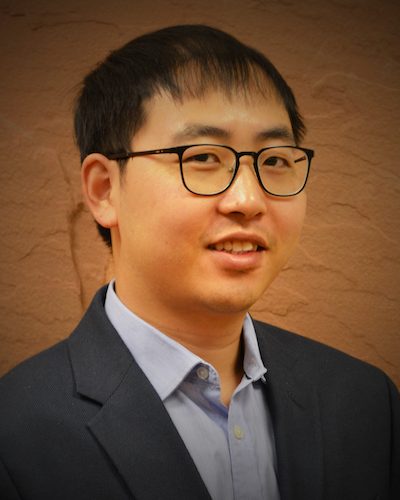2025 SPRING WEBINAR

Dr. Pengju Xing | Research Associate
April 3, 2025
Thermal cooling effect of long-term circulation in Enhanced Geothermal Systems, Raft River and FORGE
Understanding the injectivity change associated with long-term injection is relevant for geothermal operations. Chemical, thermoelastic, and poroelastic effects can all result in injectivity changes. In EGS, cold water is continuously injected into the injection well. This study investigated the data from the Raft River Enhanced Geothermal System (EGS) project and showed that the injectivity increase can be explained as a result of thermoelastic stress and aperture changes. This study focuses on interpreting the injectivity increase from the perspective of thermal cooling effect. When cold water is circulated through a fracture in a geothermal reservoir, the adjacent rock’s temperature is reduced and a tensile thermoelastic stress change is imposed. There is rock contraction and fracture aperture increase. Fracture aperture increase near the injection point – due to thermally induced stresses – causes a reduction in the fluid injection pressure and hence injectivity increase. Similar injectivity increase phenomenon was also observed in circulation test at Utah FORGE site. The increase in injectivity suggest that cooling could play an important role in the development of reservoir conductivity and could be an important mechanism for EGS reservoir development.
About Dr. Pengju Xing
Dr. Pengju Xing is a Research Associate at the Energy & Geoscience Institute (EGI), University of Utah. Dr. Xing has over 10 years of professional experience in geomechanics, spanning both industry and academia, with expertise in numerical simulations and laboratory experiments. Over the past five years, his work has focused on geothermal geomechanics research, while also contributing to projects in the oil and gas, and mining industries. My research integrates geomechanics with transdisciplinary methods, including numerical modeling, experimental techniques, and data science, to enhance our understanding of the subsurface. Dr. Xing has worked on different geothermal projects including: numerical modeling of the stimulation for FORGE, in-situ stresses measurements for geothermal reservoir using with newly proposed temperature signatures and flowback methods, developing machine learning models to predict formation properties using drilling data from geothermal wells, drilling performance evaluation at The Geysers, simulation of the circulation in Raft River EGS project, measuring the liquid/steam fraction in geothermal production, etc.
